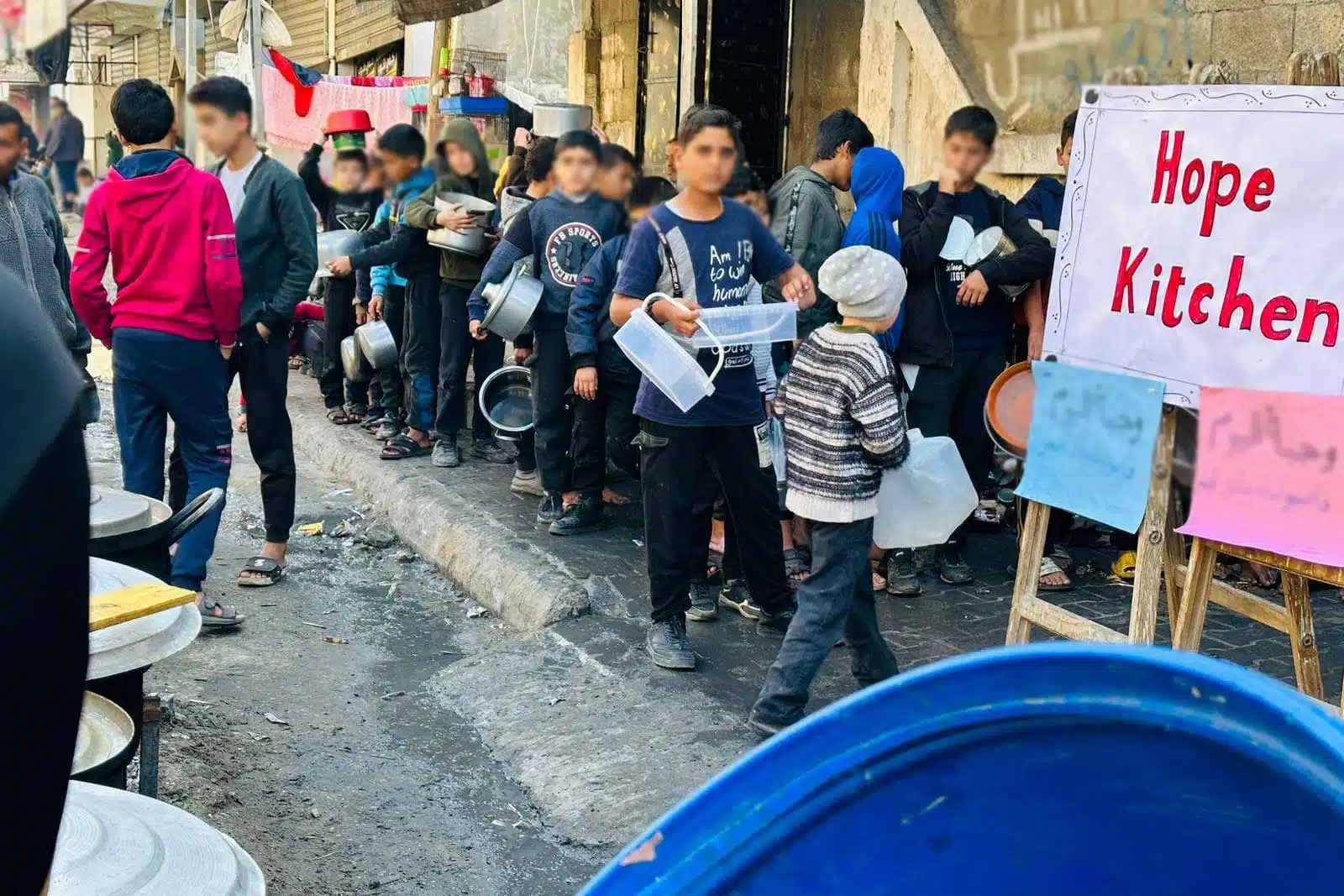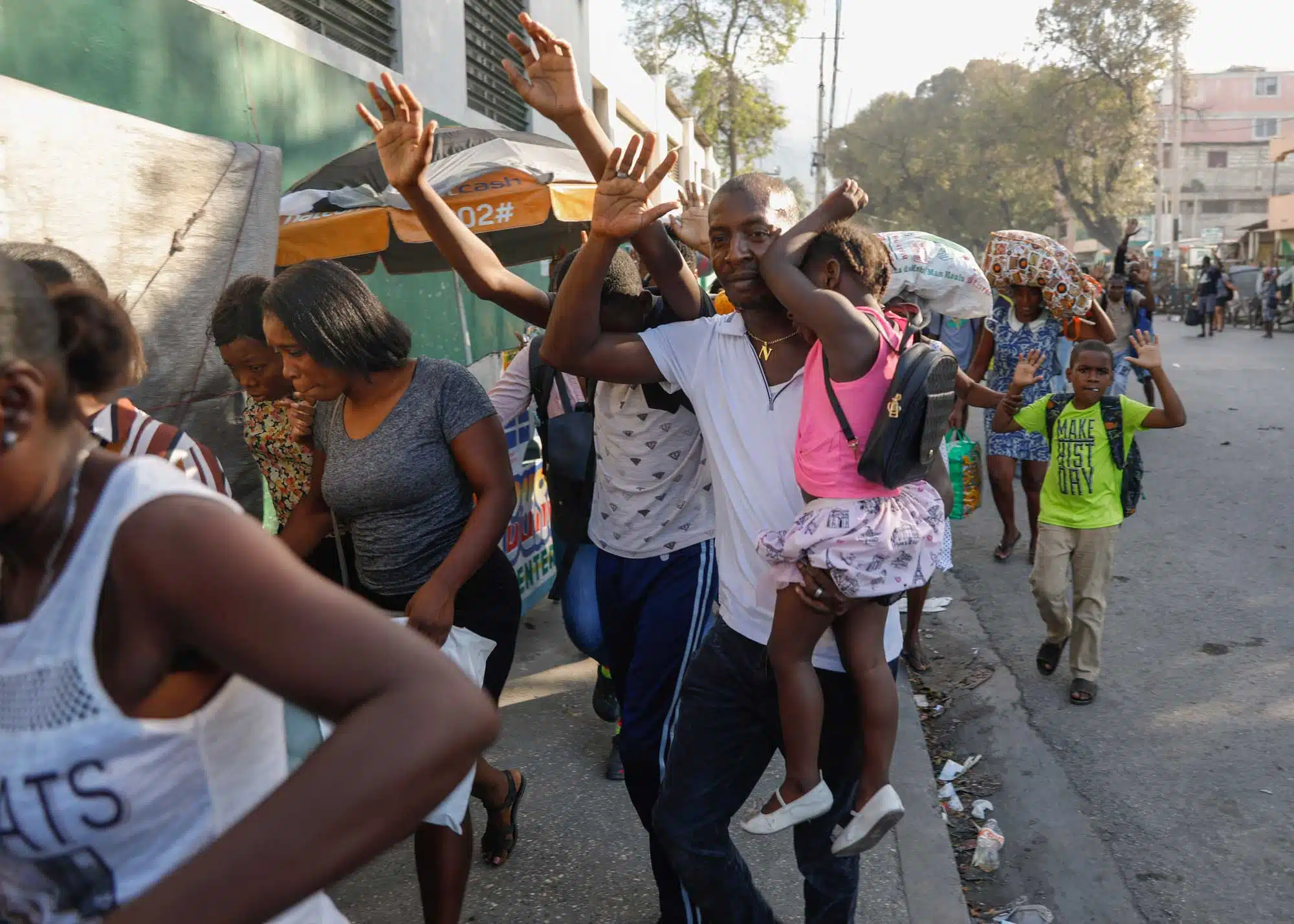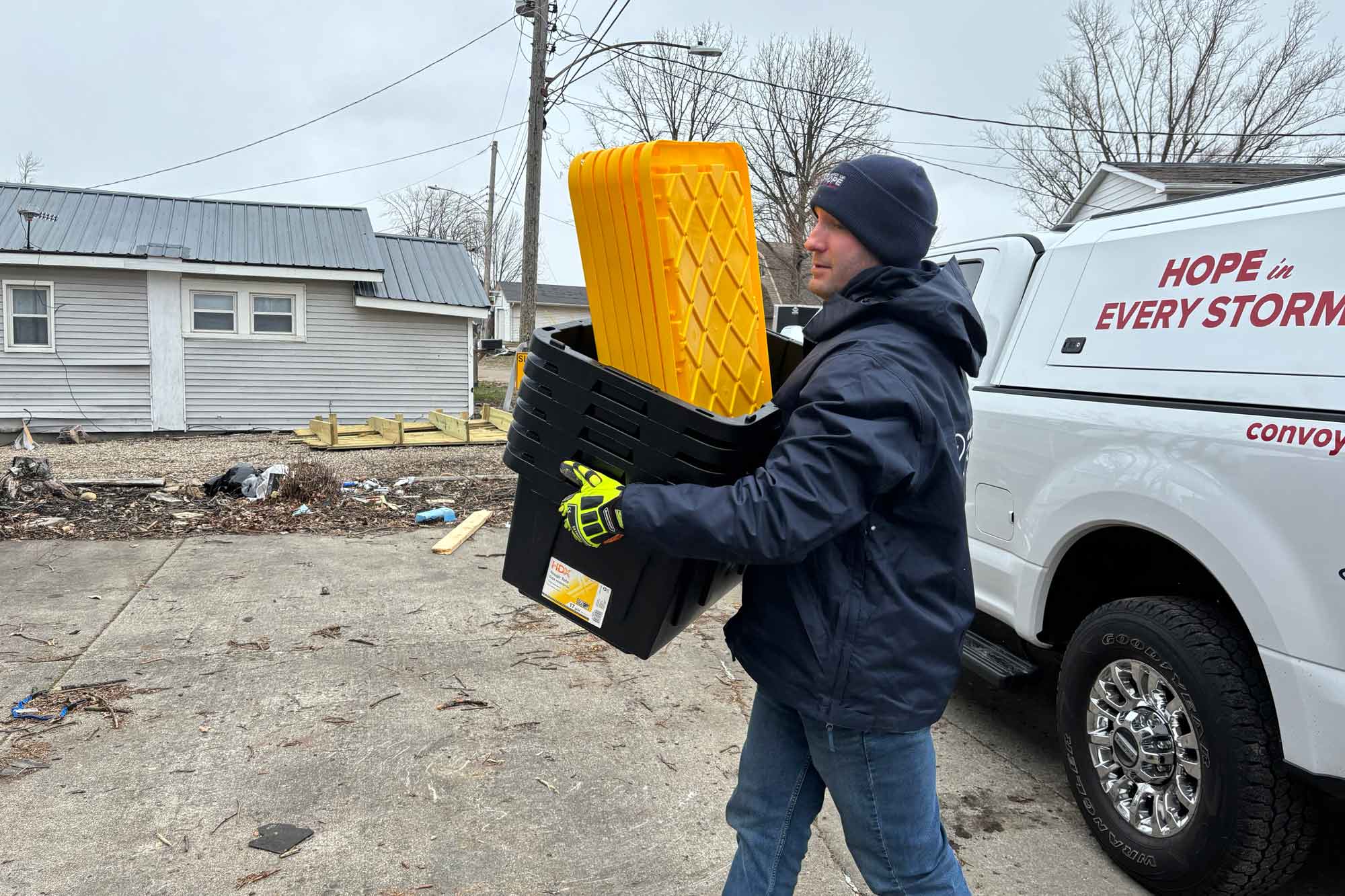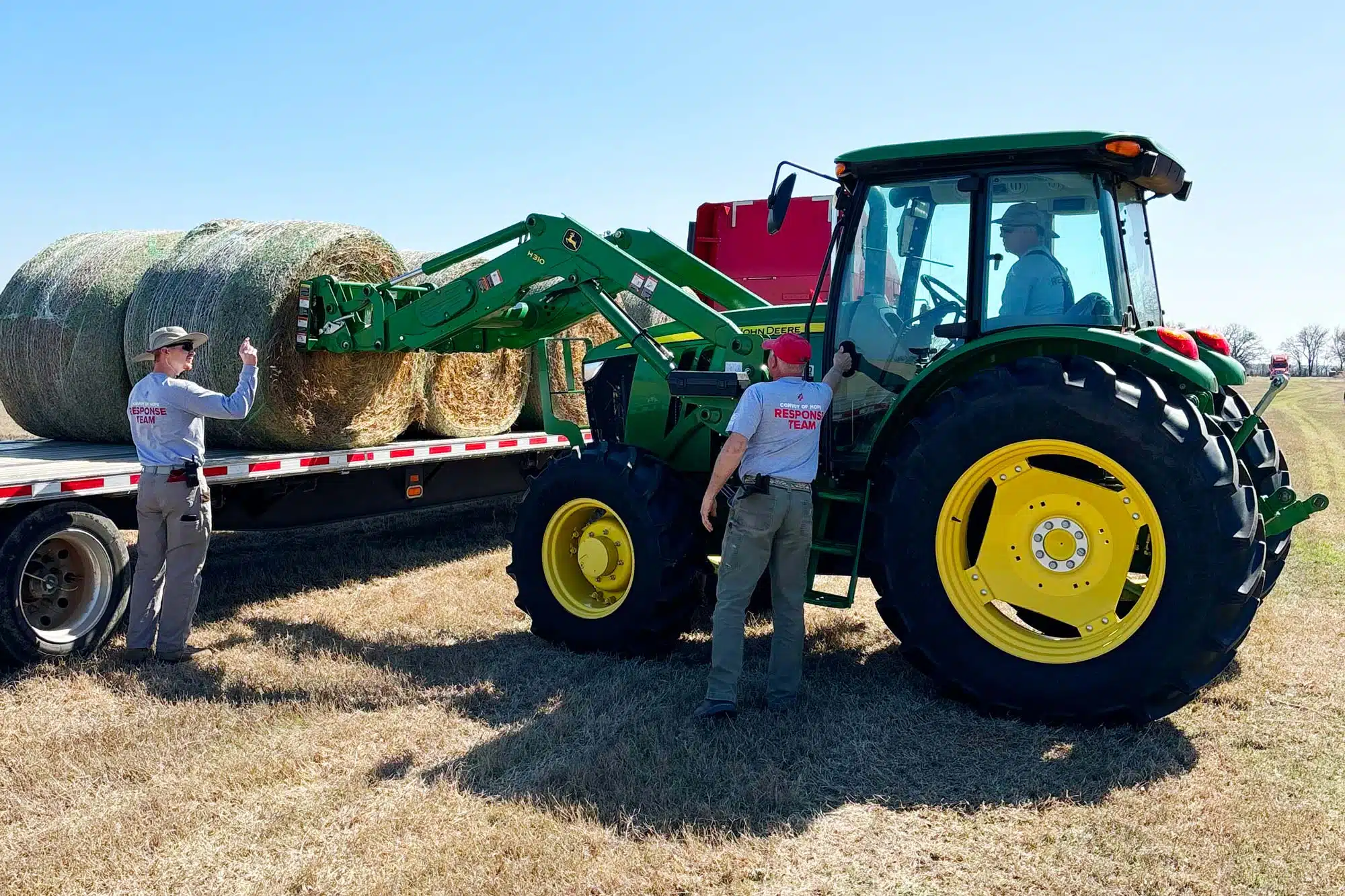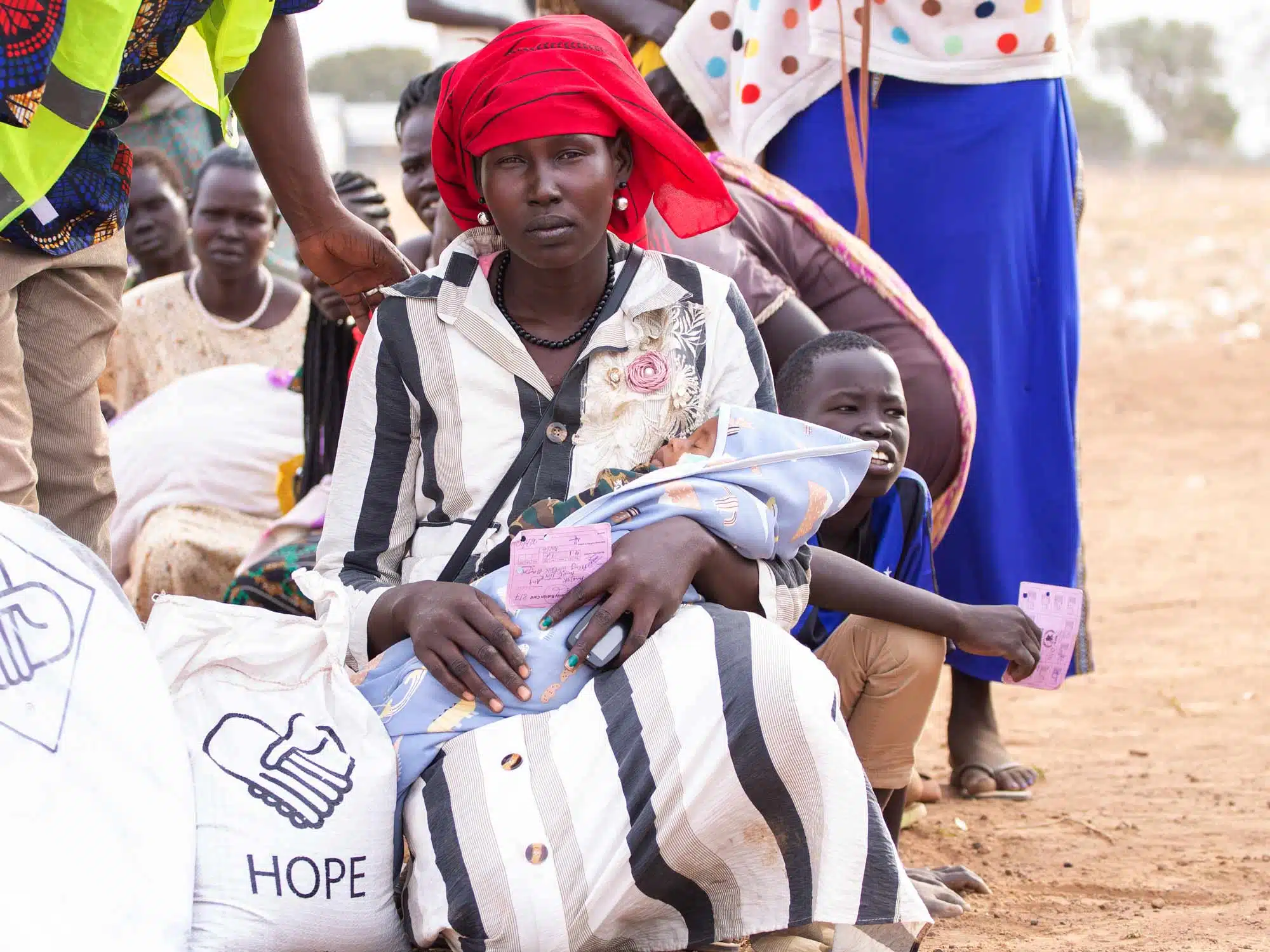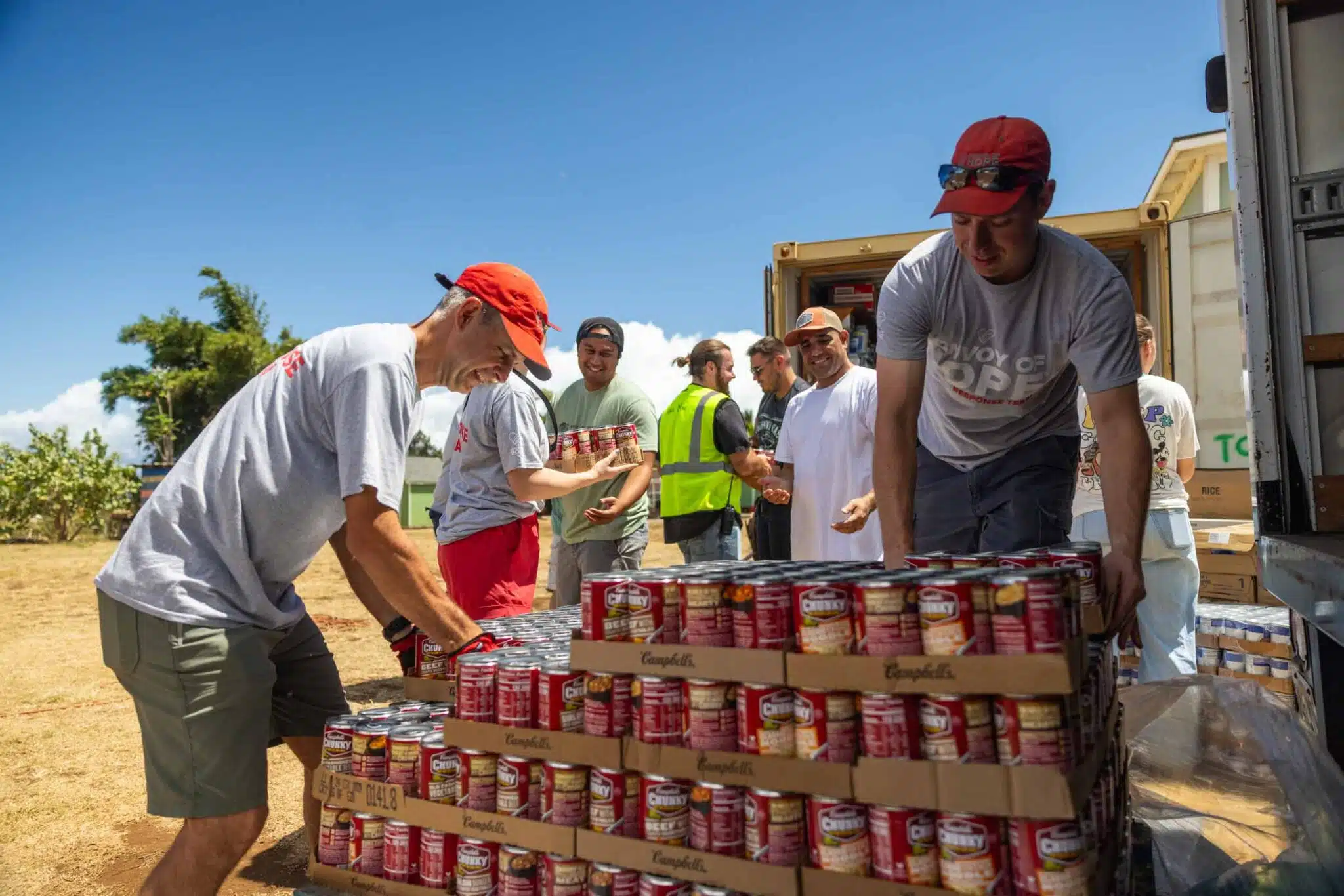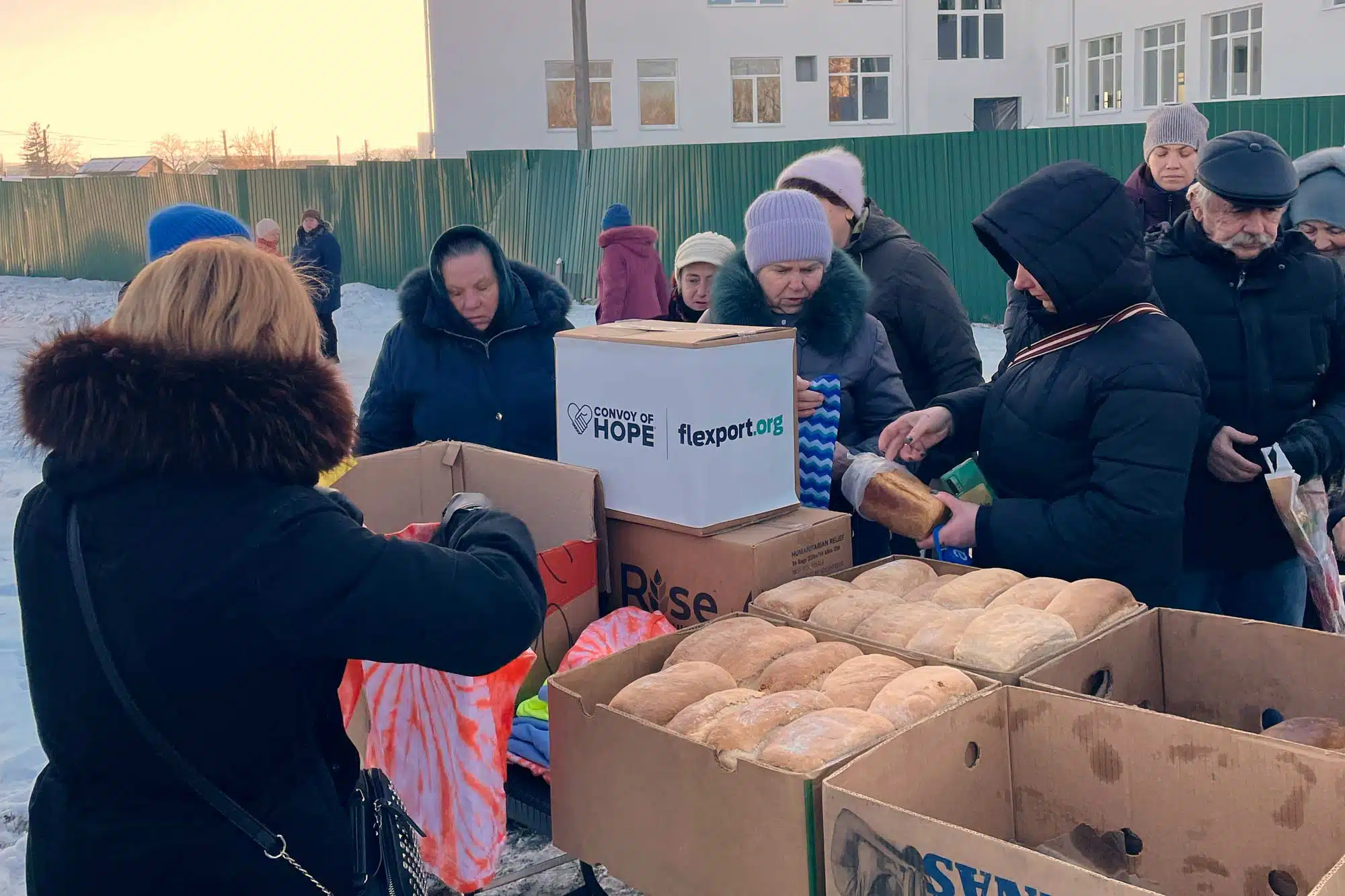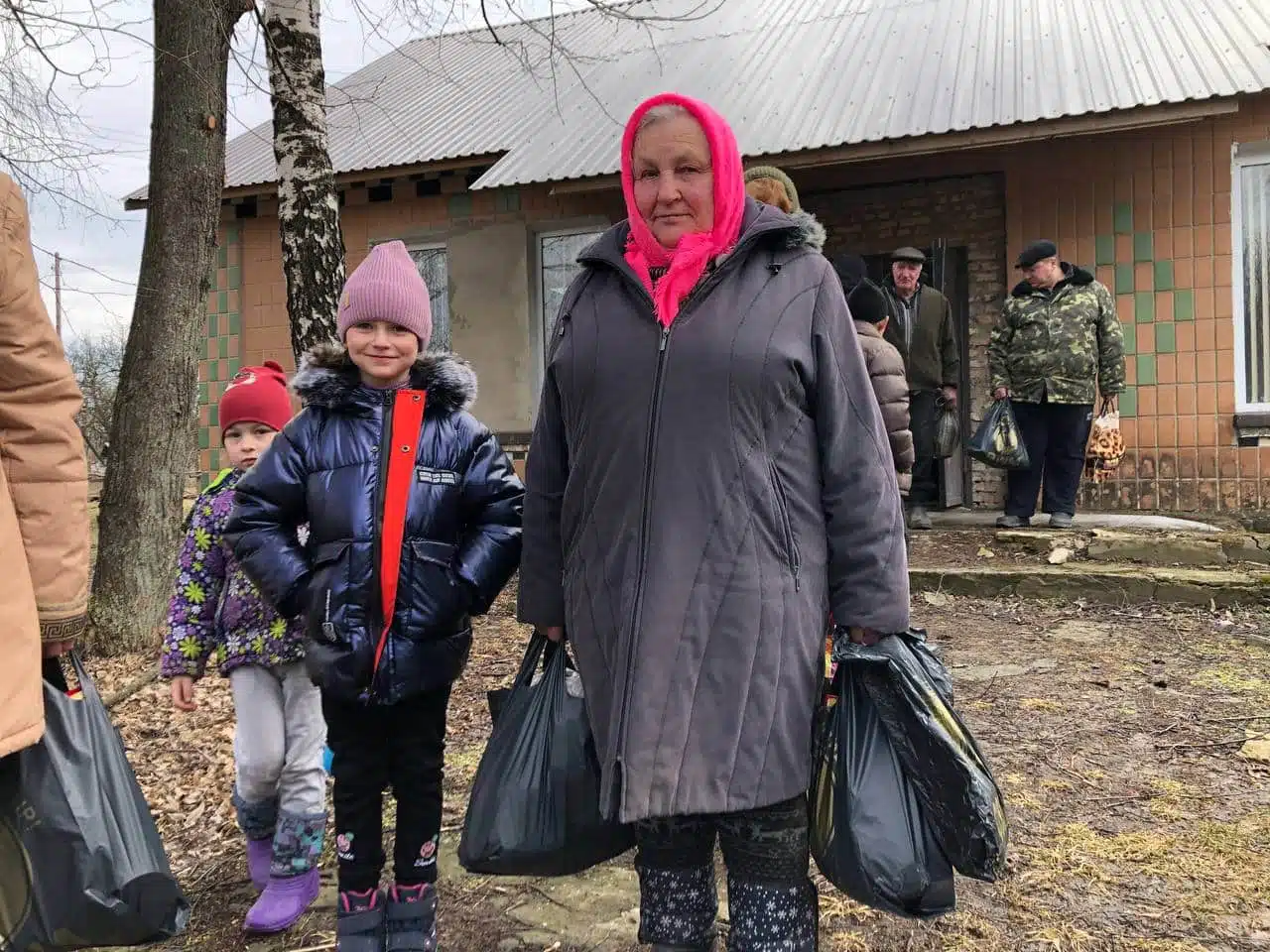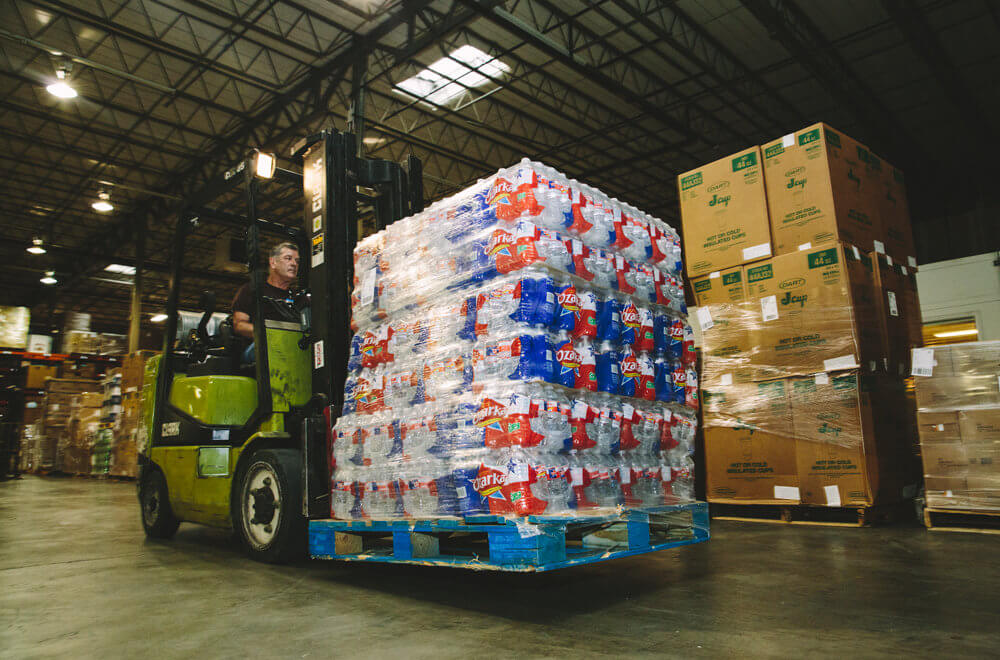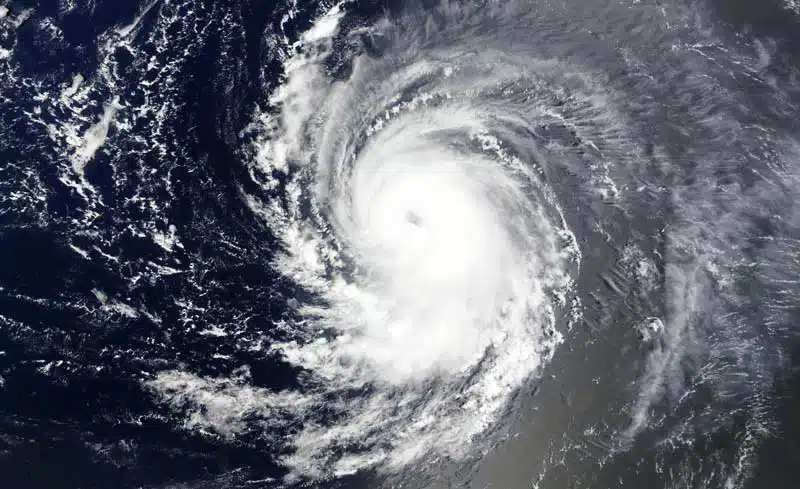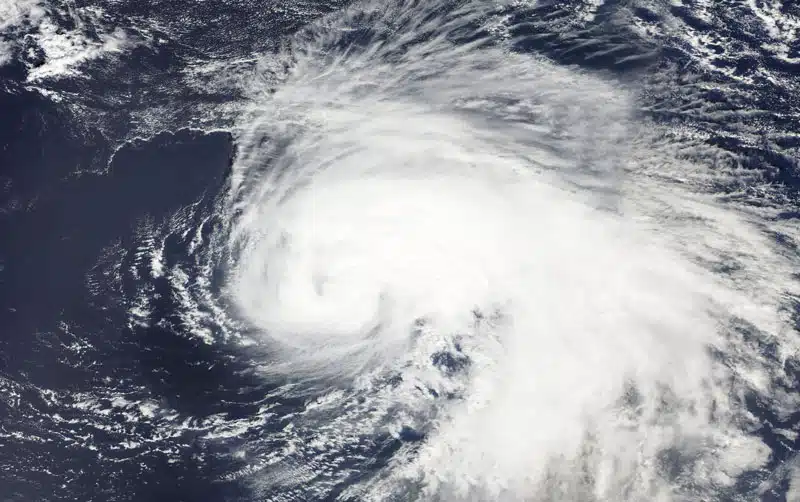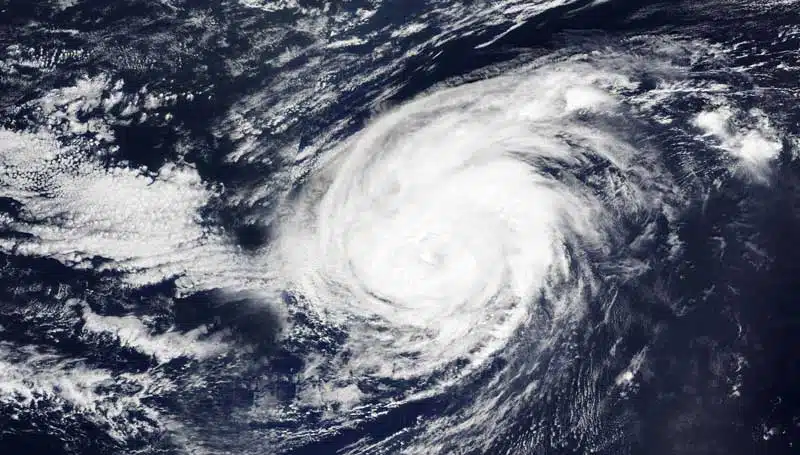Whenever you hear of a named tropical storm or hurricane during the Atlantic hurricane season, that name comes from one of six official lists.
These lists are maintained and rotated each year by the World Meteorological Organization.
You can see the current lists here. Joyce is the 10th name on the list for 2024.
Some people enjoy researching past storms that carried a name from a current list. If you’re one of those people, when it comes to storms named Joyce, you have two tropical storms and a hurricane in the Atlantic you can check out.
There are also two tropical storms and a hurricane named Joyce that moved through the Pacific and a Cyclone Joyce that impacted the Australian Region.
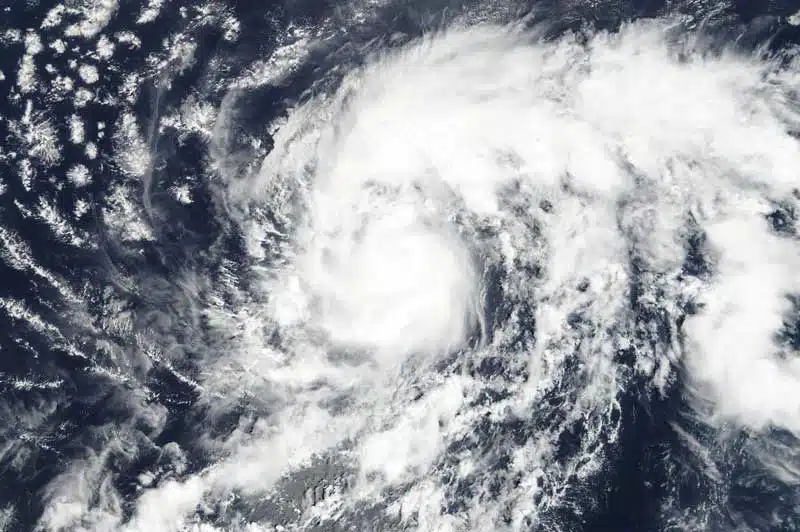
Hurricane Joyce moving southwest of the Cape Verde Islands on September 23, 2000.
All named storms are a form of tropical cyclone — a rotating, organized system of clouds and thunderstorms that originates over tropical or subtropical waters and has a closed low-level circulation.
If Joyce becomes a hurricane during the 2024 hurricane season, or even receives tropical storm status, it will depend on that weather system’s wind speed.
Tropical Depressions
Early in a cyclone’s development, as a tropical depression, wind speeds are less than 39 mph. Tropical depressions are not given names but are tracked in case they grow into tropical storms or hurricanes.
Tropical Storms
Joyce’s classification as a tropical storm and the release of its name would happen when its sustained wind speed reaches 39 mph. If that speed reaches 74 mph, Joyce will be a hurricane.
Always remember, even if a tropical storm never achieves hurricane status, it can pose a threat to lives and property.
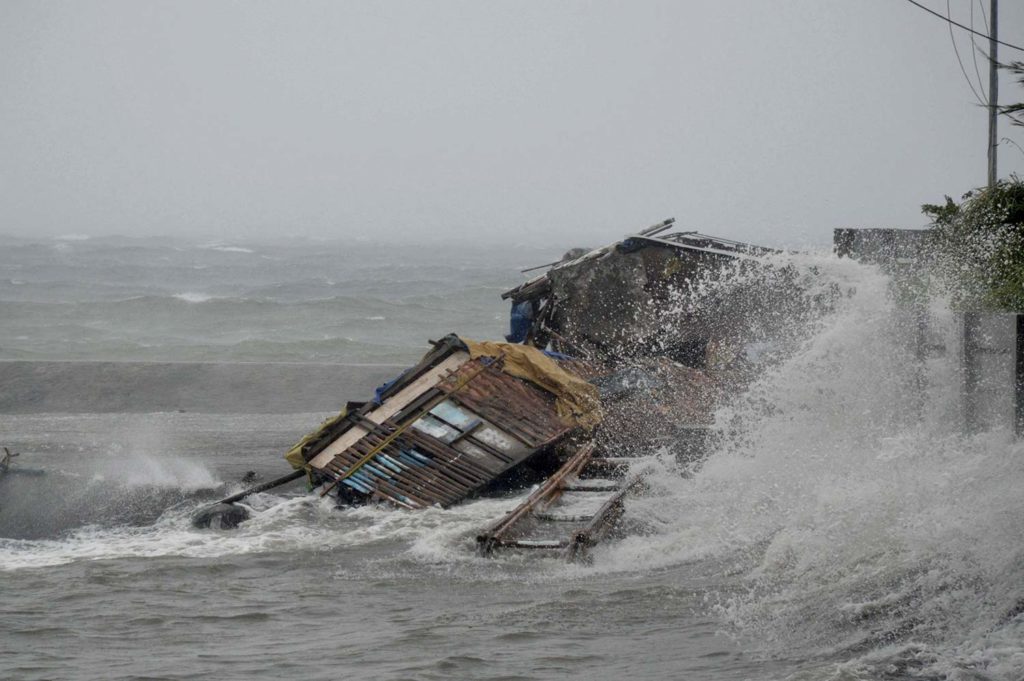
When Was Hurricane Joyce?
With Joyce squarely in the 10th slot on the World Meteorological Organization’s list of scheduled storm names for 2024, you might wonder for other years, “When did Hurricane Joyce hit?” or “What year was Hurricane Joyce?”
The Atlantic’s single Hurricane Joyce was the 10th named storm of 2000.
Where Did Hurricane Joyce Hit?
In 2000, Hurricane Joyce stayed almost entirely in the open sea.
The only contact with land was near the end of its life cycle when it crossed the Windward Islands after weakening to a tropical depression.
The approach of the storm resulted in tropical storm warnings and watches for the islands, always a prudent step when a weather system of that size and potential strength approaches inhabited regions.
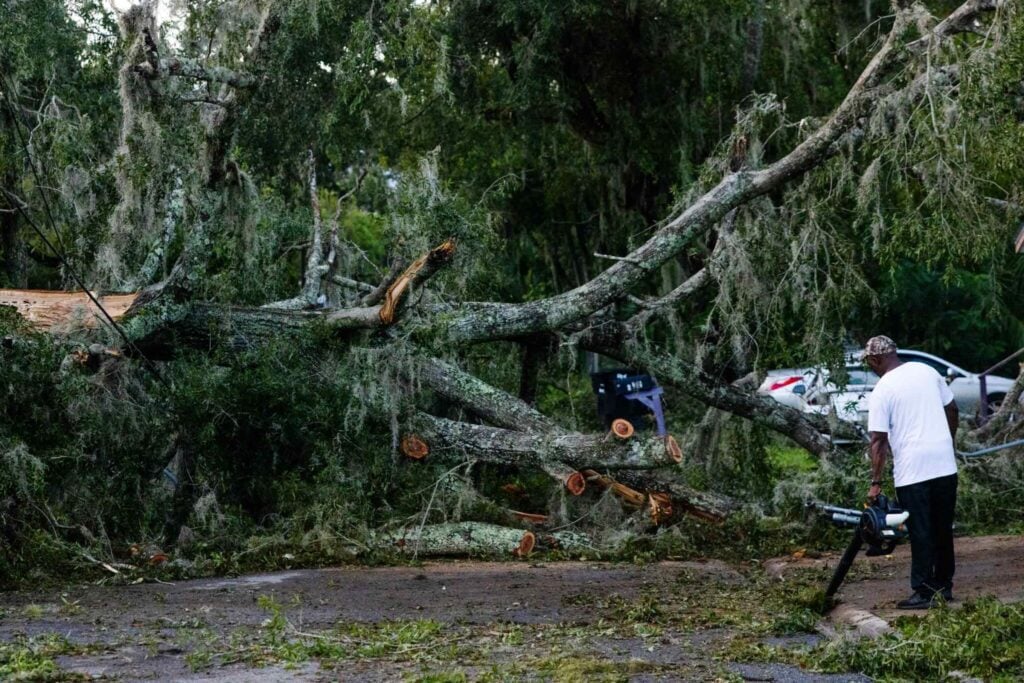
If you have followed other “All About” articles on this website, you’ve seen that with some tropical cyclone names, a tropical storm ended up doing more damage than a hurricane.
That’s a solid reminder to take any named storm seriously if it is headed to your area. In the case of Joyce, both tropical storms in 2012 and 2018 never affected land.
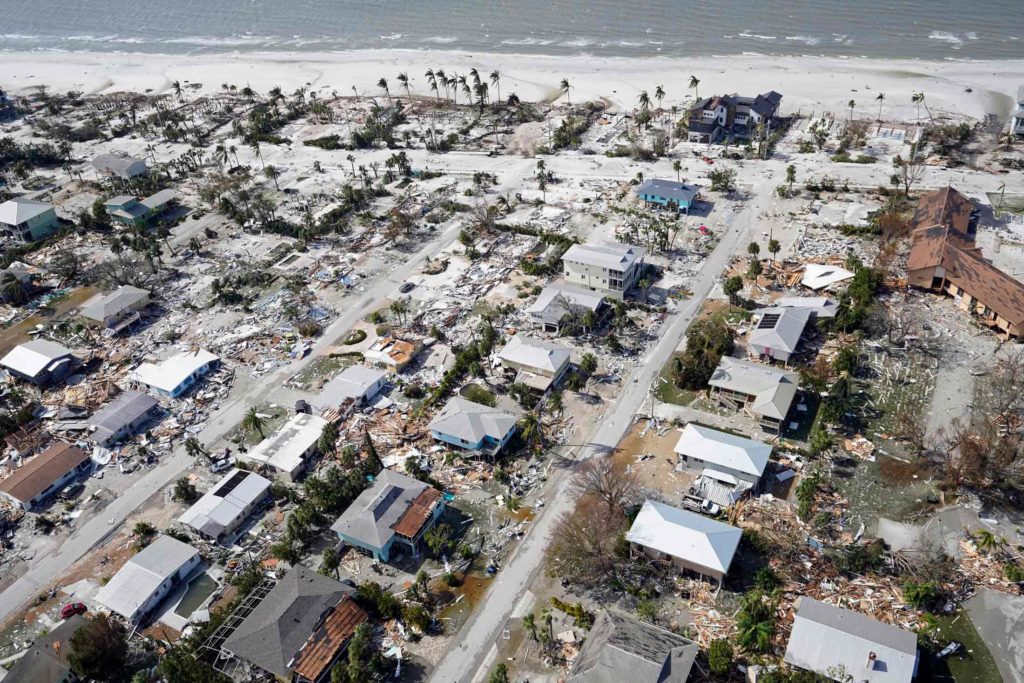
What Category Was Hurricane Joyce?
Hurricane Joyce never surpassed Category 1 status, with peak sustained winds reaching 90 mph, but nowhere near land.
It was still four days out in the Atlantic at top strength, weakening to tropical storm and tropical depression status before landfall on the Windward islands.
What Time Will Hurricane Joyce Make Landfall?
If you research, “What time did Hurricane Joyce make landfall?” in connection with any of the years mentioned, the answers will not help you prepare if Joyce becomes a significant storm in 2024.
It’s wise to stay up to date on weather forecasts and be aware of a specific storm’s estimated landfall if a current storm is predicted to reach your region.
Thanks to satellite and radar imagery, those predictions can be very accurate, giving you plenty of time to prepare. Don’t make the mistake of waiting until the last minute to reach a safe area.
This article will be updated should more details about Joyce become available in 2024.
How Many People Died in Hurricane Joyce?
None of the storms named Joyce — either 2000’s hurricane or the tropical storms of 2012 and 2018 — caused any loss of life.
What Was the Path of Hurricane Joyce?
In 2000, Joyce’s early development came with a weather system coming off the west coast of Africa and influenced by the wake of Hurricane Isaac.
Joyce’s path was almost directly east to west across the Atlantic, moving through hurricane status and then weakening before its approach to the Windward islands.
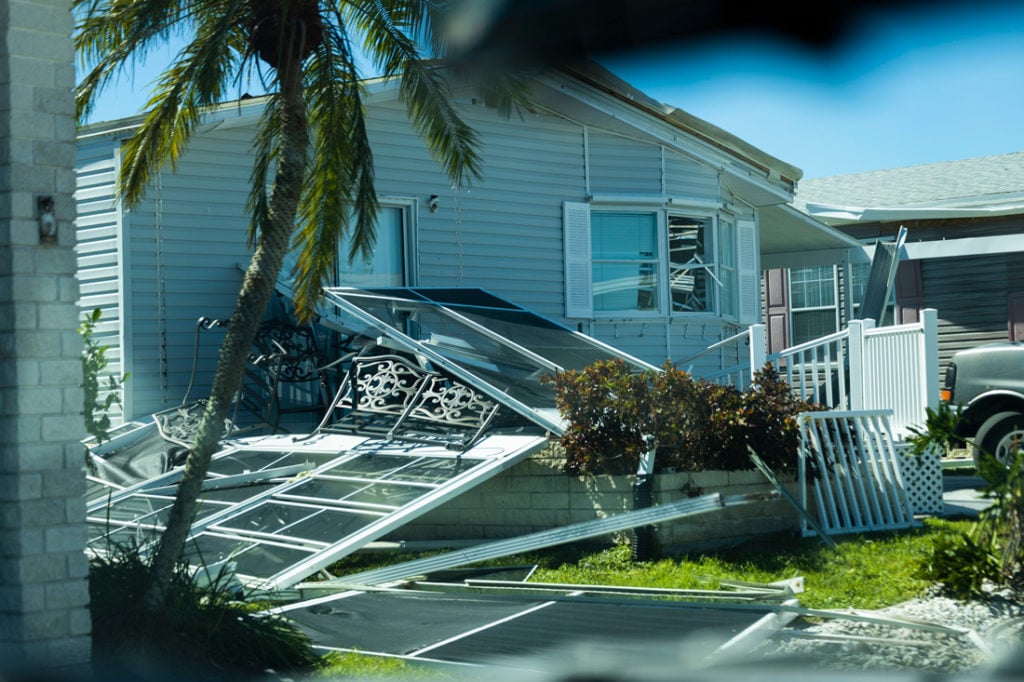
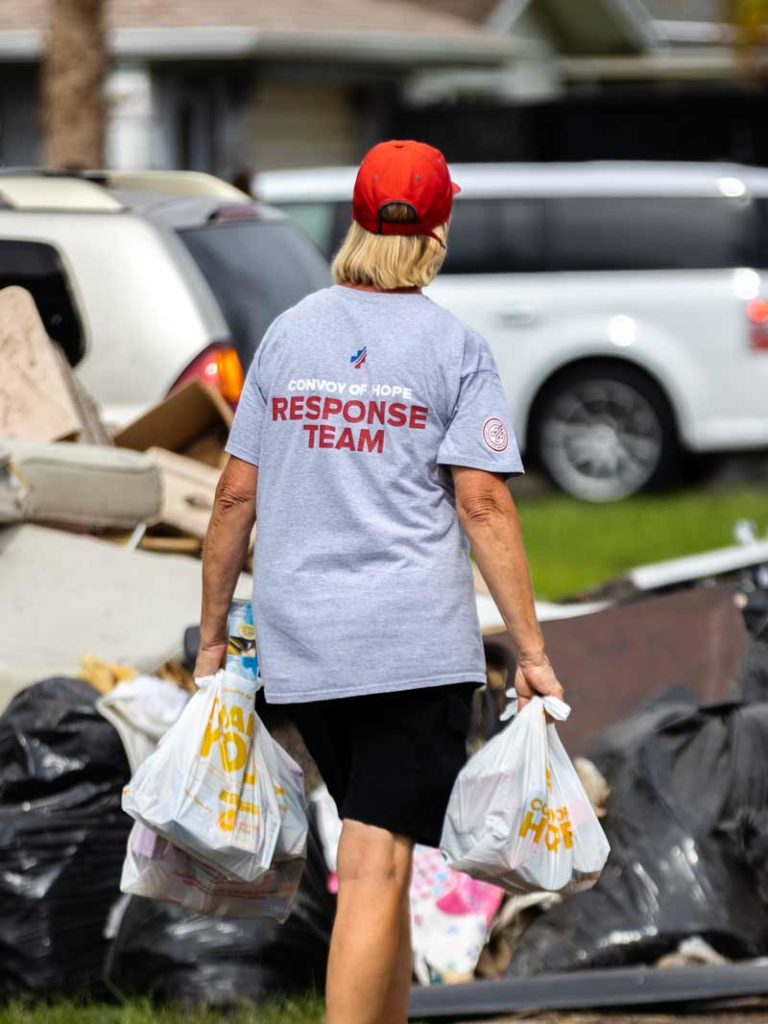
Convoy of Hope & Hurricanes
Convoy of Hope is a faith-based nonprofit serving the poor and hungry in dozens of program countries around the world.
Because natural disasters have such a deep and negative impact on communities, Convoy views disaster response as integral to its larger mission.
Following hurricanes and other disasters, food, water, and key necessities quickly become scarce.
Celebrating its 30th anniversary in 2024, Convoy has a long history of responding to communities impacted by hurricanes.
In 1998, flooding in Del Rio, Texas, followed that year’s Tropical Storm Charley.
Convoy marks Del Rio as its first disaster response, and hurricanes continue to be an annual priority for the organization.
How Convoy Responds to Disasters
The Disaster Services team at Convoy’s World Distribution Center follows weather updates closely throughout hurricane season. Days ahead of a predicted landfall, careful planning pulls together the resources intended for distribution in affected communities.
Volunteers and team members pack food, water, cleaning supplies, and more before a convoy of trucks heads toward the disaster zone. After a hurricane has passed and a community’s needs become clear, one or more distribution points can begin operation.
With the help of local churches and other organizations, volunteers and Convoy team members offload pallets of supplies from semi-trucks and strategically position them across a large parking lot. Soon, residents are driving by gratefully accepting groceries, bottled water, bags of ice, cleaning supplies, and other resources.
Hurricane Idalia Response
When Hurricane Idalia made landfall in Florida on August 30, 2023, it brought sustained winds of 115 mph.
It also created a larger storm surge and higher wind gusts than that part of the Gulf had seen in 125 years.
Some areas — like the island city of Cedar Key — experienced a 9-foot storm surge.
Convoy’s team had been following reports on Idalia closely.
Personnel were on the ground in Perry, Florida, by the next day assessing damage and meeting local officials and partners to identify the best ways to meet needs.
Convoy has served tens of thousands of people in the disaster zone following Hurricane Idalia, ensuring they receive essential relief supplies like food, water, hygiene kits, and cleaning supplies.
Within a week, Convoy had distributed more than 287,000 pounds of relief supplies to tens of thousands of people across the region.
When storm damage is sufficiently severe, Convoy develops a long-term recovery response. A year or more after a major storm, Convoy may still be onsite with follow-up distributions.
For example, LaPlace, Louisiana, was the site of a Convoy recovery event in November 2022 for regions hit hard by 2021’s Hurricane Ida.
Convoy teams distributed groceries, hot meals, and home goods. At recovery events like these, insurance specialists and mental health professionals provide legal aid, talk people through insurance difficulties, and offer emotional care.
Convoy of Hope Disaster Services responds to natural disasters around the world — earthquakes, floods, wildfires, hurricanes, and drought — offering help and hope to people facing some of the most challenging circumstances in their lives. The nonprofit, faith-based organization pursues a driving passion to feed the world through children’s feeding initiatives, community outreach, and disaster response.
